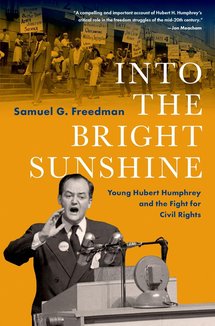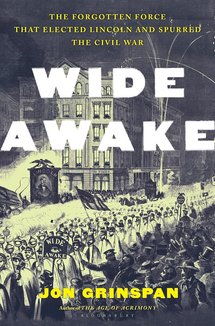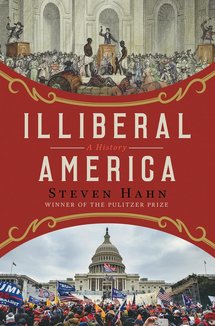Recommended Books

Into the Bright Sunshine: Young Hubert Humphrey and the Fight for Civil Rights
Author:
Samuel G. Freedman
ISBN 13:
978-0197535196
From one of the country's most distinguished journalists, a revisionist and riveting look at the American politician whom history has judged a loser, yet who played a key part in the greatest social movement of the 20th century. "Riveting. . . . A superbly written tale of moral and political courage for present-day readers who find themselves in similarly dark times." -The New York Times During one sweltering week in July 1948, the Democratic Party gathered in Philadelphia for its national convention. The most pressing and controversial issue facing the delegates was not whom to nominate for president -the incumbent, Harry Truman, was the presumptive candidate -but whether the Democrats would finally embrace the cause of civil rights and embed it in their official platform. Even under Franklin Roosevelt, the party had dodged the issue in order to keep a bloc of Southern segregationists-the so-called Dixiecrats-in the New Deal coalition. On the convention's final day, Hubert Humphrey, just 37 and the relatively obscure mayor of the midsized city of Minneapolis, ascended the podium. Defying Truman's own desire to occupy the middle ground, Humphrey urged the delegates to "get out of the shadow of state's rights and walk forthrightly into the bright sunshine of human rights." Humphrey's speech put everything on the line, rhetorically and politically, to move the party, and the country, forward. To the surprise of many, including Humphrey himself, the delegates voted to adopt a meaningful civil-rights plank. With no choice but to run on it, Truman seized the opportunity it offered, desegregating the armed forces and in November upsetting the frontrunner Thomas Dewey, a victory due in part to an unprecedented surge of Black voters. The outcome of that week in July 1948-which marks its 75th anniversary as this book is published-shapes American politics to this day. And it was in turned shaped by Humphrey. His journey to that pivotal speech runs from a remote, all-white hamlet in South Dakota to the mayoralty of Minneapolis as he tackles its notorious racism and anti-Semitism to his role as a national champion of multiracial democracy. His allies in that struggle include a Black newspaper publisher, a Jewish attorney, and a professor who had fled Nazi Germany. And his adversaries are the white supremacists, Christian Nationalists, and America Firsters of mid-century America - one of whom tries to assassinate him. Here is a book that celebrates one of the overlooked landmarks of civil rights history, and illuminates the early life and enduring legacy of the man who helped bring it about.

Wide Awake: The Forgotten Force that Elected Lincoln and Spurred the Civil War
Author:
Jon Grinspan
ISBN 13:
978-1639730643
“Excellent."--Wall Street JournalA propulsive account of our history's most surprising, most consequential political club: the Wide Awake anti-slavery youth movement that marched America from the 1860 election to civil war.At the start of the 1860 presidential campaign, a handful of fired-up young Northerners appeared as bodyguards to defend anti-slavery stump speakers from frequent attacks. The group called themselves the Wide Awakes. Soon, hundreds of thousands of young White and Black men, and a number of women, were organizing boisterous, uniformed, torch-bearing brigades of their own. These Wide Awakes--mostly working-class Americans in their twenties--became one of the largest, most spectacular, and most influential political movements in our history. To some, it demonstrated the power of a rising majority to push back against slavery. To others, it looked like a paramilitary force training to invade the South. Within a year, the nation would be at war with itself, and many on both sides would point to the Wide Awakes as the mechanism that got them there.In this gripping narrative, Smithsonian historian Jon Grinspan examines how exactly our nation crossed the threshold from a political campaign into a war. Perfect for readers of Lincoln on the Verge and TheField of Blood, Wide Awake bears witness to the power of protest, the fight for majority rule, and the defense of free speech. At its core, Wide Awake illuminates a question American democracy keeps posing, about the precarious relationship between violent speech and violent actions.

Illiberal America: A History
Author:
Steven Hahn
ISBN 13:
978-0393635928
If your reaction to the January 6, 2021, insurrection at the Capitol was to think, 'That’s not us,' think again: in Illiberal America, a Pulitzer Prize–winning historian uncovers a powerful illiberalism as deep-seated in the American past as the founding ideals. A storm of illiberalism, building in the United States for years, unleashed its destructive force in the Capitol insurrection of January 6, 2021. The attack on American democracy and images of mob violence led many to recoil, thinking “That’s not us.” But now we must think again, for Steven Hahn shows in his startling new history that illiberalism has deep roots in our past. To those who believe that the ideals announced in the Declaration of Independence set us apart as a nation, Hahn shows that Americans have long been animated by competing values, equally deep-seated, in which the illiberal will of the community overrides individual rights, and often protects itself by excluding perceived threats, whether on grounds of race, religion, gender, economic status, or ideology. Driven by popular movements and implemented through courts and legislation, illiberalism is part of the American bedrock. The United States was born a republic of loosely connected states and localities that demanded control of their domestic institutions, including slavery. As white settlement expanded west and immigration exploded in eastern cities, the democracy of the 1830s fueled expulsions of Blacks, Native Americans, Catholics, Mormons, and abolitionists. After the Civil War, southern states denied new constitutional guarantees of civil rights and enforced racial exclusions in everyday life. Illiberalism was modernized during the Progressive movement through advocates of eugenics who aimed to reduce the numbers of racial and ethnic minorities as well as the poor. The turmoil of the 1960s enabled George Wallace to tap local fears of unrest and build support outside the South, a politics adopted by Richard Nixon in 1968. Today, with illiberalism shaping elections and policy debates over guns, education, and abortion, it is urgent to understand its long history, and how that history bears on the present crisis.